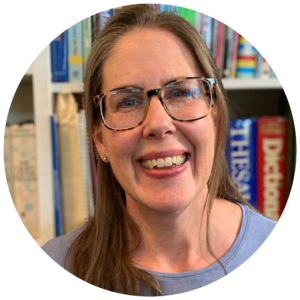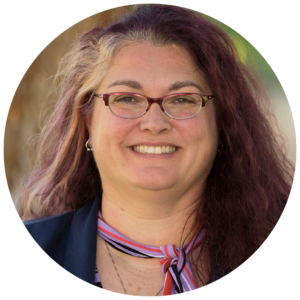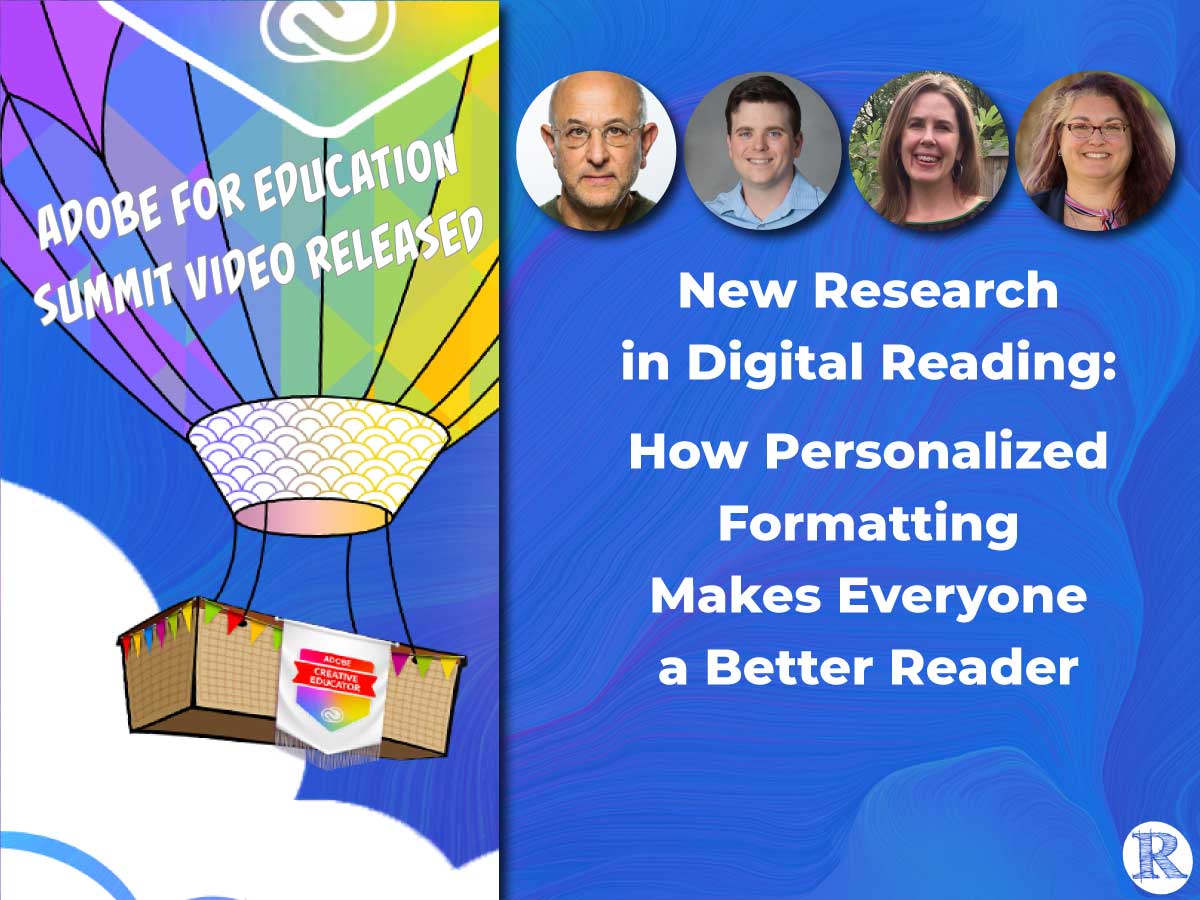Video Released: Adobe for Education Summit, July 2021
New research in digital reading:
How personalized formatting makes everyone a better reader
Learn more about the latest readability research. Small changes to text formats can maximize an individual’s ability to read quickly and accurately, and comprehend more. Digital reading allows the shift from what is best for the population to what is best for the individual reader. New insights will inform the design of better reading applications that can accelerate learning for students of all ages.
Rick outlines Adobe’s investments in better reading. Sean Wallace discusses his work as the architect of the Virtual Readability Lab. Susanne Nobles previews data coming from a student readability study sponsored by Readability Matters; the study was designed to evaluate the link between enhanced reading experiences and comprehension. Shelley discusses her research on readability with college students.

Rick Treitman, Adobe
ABOUT RICK TREITMAN: Rick started his professional career as a High School English and media teacher and published the first-ever computer-typeset student newspaper in 1975. Rick is currently Entrepreneur-in-Residence for Document Cloud – specializing in Education. Rick’s work as EIR involves early-stage development of tools and solutions for Adobe’s customers. Current projects include readability controls in Acrobat and establishing the Virtual Readability Lab at the University of Central Florida. He was a founder of Virtual Ubiquity, acquired by Adobe in 2007. Virtual Ubiquity created Buzzword, one of the first cloud-based word processors. Prior to VU, Rick was the owner of Softpro Books – a Boston area technical bookstore chain catering to high tech professionals. He was an early employee of Lotus Development where he had several positions including Director of Product Management and Marketing for various product groups. Rick lives in Lexington, MA with his wife, Cantor Louise Treitman. They have three daughters and six grandchildren. When not working, he’s usually on his bike or in the kitchen.

Shaun Wallace, Brown University
ABOUT SHAUN WALLACE Shaun is the architect and co-creator of the Virtual Readability Lab, where reading researchers develop personalized readability tests and recommendations to help reduce information overload. He is currently completing his Ph.D. at Brown University under the guidance of Jeff Huang. Shaun is a Human-Computer Interaction systems researcher focusing on building remote asynchronous collaboration systems that provide users with personalized recommendations to assist their daily information-seeking behaviors. He started his work on the Virtual Readability Lab as a research intern with Adobe’s Creative Intelligence Lab under the direction of Zoya Bylinskii.

Dr. Susanne Nobles, ReadWorks.org
ABOUT DR. SUSANNE NOBLES Susanne Nobles is Chief Academic Officer at the nonprofit ReadWorks. The mission of ReadWorks is to support the growth of successful, joyful readers by providing K-12 teachers with what to teach and how to teach it—online, for free, to be shared broadly. Susanne has spent her career working to empower educators and students with research, structures, and tools for meaningful and effective learning. She led Digital Promise’s collaborative work with developers, researchers, and educators for the Learner Variability Project (LVP). Susanne has also been an adjunct instructor with Relay Graduate School of Education and was a K-12 teacher and administrator for over 20 years. Her Ph.D. research focused on creating effective digital communities of practice, and her scholarly work has appeared in Computers and Composition, Contemporary Issues in Technology and Education,

Dr. Shelley Rodrigo, University of Arizona
ABOUT DR. SHELLEY RODRIGO Rochelle (Shelley) Rodrigo is the Senior Director of the Writing Program, Associate Professor in the Rhetoric, Composition, and the Teaching of English (RCTE); and Associate Writing Specialist (Continuing Status) in the Department of English at the University of Arizona. She researches how “newer” technologies better facilitate communicative interactions, specifically teaching and learning. As well as co-authoring three editions of The Wadsworth/Cengage Guide to Research, Shelley also co-edited Rhetorically Rethinking Usability (Hampton Press). Her scholarly work has appeared in Computers and Composition, C&C Online, Technical Communication Quarterly, Teaching English in the Two-Year College, EDUCAUSE Quarterly, Journal of Interactive Technology & Pedagogy, Enculturation¸ as well as various edited collections. In 2021 she was elected Vice President (4-year term including President) of the National Council of Teachers of English and won the Arizona Technology in Education Association’s Ruth Catalano Friend of Technology Innovation Award, in 2018 she became an Adobe Education Leader, in 2014 she was awarded Old Dominion University’s annual Teaching with Technology Award, in 2012 the Digital Humanities High Powered Computing Fellowship, and, in 2010 she became a Google Certified Teacher/Innovator.




